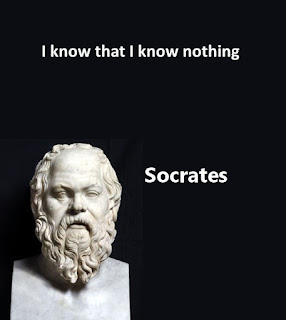Socrates: The life and the trial
Introduction :
Socrates was born on C. 470 BCE , Athens ( Greece) He died on 399 BCE , Athens. He was an ancient Greek philospher.
Although Socrates himself wrote nothing .he is depicted in conversation in composition by a small circle of his admires ploto and xenophin first among them .Socrates was a polarizing figure in Athenian society.
Socrates' life :
Socrates live through the golden age of Athens, a period marked by the rise of democracy, the flourishing of the arts and the intellectual advancements of the sophists.
Socrates was one of the most iconic figures in western philosophy , his life , teachings and methods continue to be studied continue to be studied and revered , making him a central figure in the history of philosophy .
Socrates authored no texts and is known mainly through the posthumous accounts of classical writers, particularly his time . Socrates did not write down his ideas . Instead, he engaged in dialogues with people from various walks of life questioning their beliefs and encouraging them to think critically .
The Socratic method :
One of Socrates ' most significant contributions to philosophy is the Socratic method , a form of cooperative argumentative dialogue.
The Socratic methods is more than just a technique ; it reflects Socrates' belif in the importance of self - examination . He famously decrared " The unexamined life of not worth living " . Highliting his commitment to the pursuit of knowledge and self awareness.
Socrates' influence
The impact of Socrates on philosophy can not be overstated. His student , Plato, documented many of Socrates' dialogues , preserving his ideas for future generations.
Socrates' emphasis on critical thinking, ethics , and the pursuit of truth continues to resonate today his life serves as a powerful example of intellectual integrity and enduring importance of and understanding the works around us .
Socrates' Philosophy: Why were you talking about a dying chicken?
Greek tradition involved offering animal sacrifice to the gods for favors received or sought. Presumably Socrates had made a vow to Asclepius and gotten what he wanted, so he felt honor bound to pay it back.
As a parting statement, it’s a brilliant example to Plato’s often under-appreciated skills as a dramatist. The long, monologues-disguised-as-dialogues in the Republic often make people forget that before Plato was a philosopher, he was a playwright.
On one level, fulfillment of the vow is a jab at Socrates’ accusers: they had him killed for “impiety” and yet here he displays humble, conventional piety. It shows how wrong they were about his character and motives.
The Trial of Socrates (Plato's Apology):
The formal accusation was the second element of the trial of Socrates, which the accuser, Meletus, swore to be true, before the archon (a state officer with mostly religious duties) who considered the evidence and determined that there was an actionable case of "moral corruption of Athenian youth" and "impiety", for which the philosopher must legally answer; the archon summoned Socrates for a trial by jury.
Plato's Apology is that the judges who condemned Socrates to death, and the climate of opinion in Athens that led to the charges against Socrates, were unjust and untrue. In the Apology, Plato argues that Socrates, not the judges and not Athens, represent the truth.
Death :
Socrates' method of execution was drinking a cup of poison hemlock. This was a common form of execution at the time. He spent his final moments in conversation with his disciples, discussing the nature of the soul and the afterlife. His death is one of the most famous in history, symbolizing the conflict between the individual and the state, as well as the pursuit of truth and justice.
Conclusion:
Socrates' willingness to die for his beliefs underscores his commitment to his principles, making his life a powerful example of the enduring importance of intellectual courage and ethical living. His legacy continues to inspire and challenge us to think deeply about our own lives and the world around us.
Thank you



Comments
Post a Comment